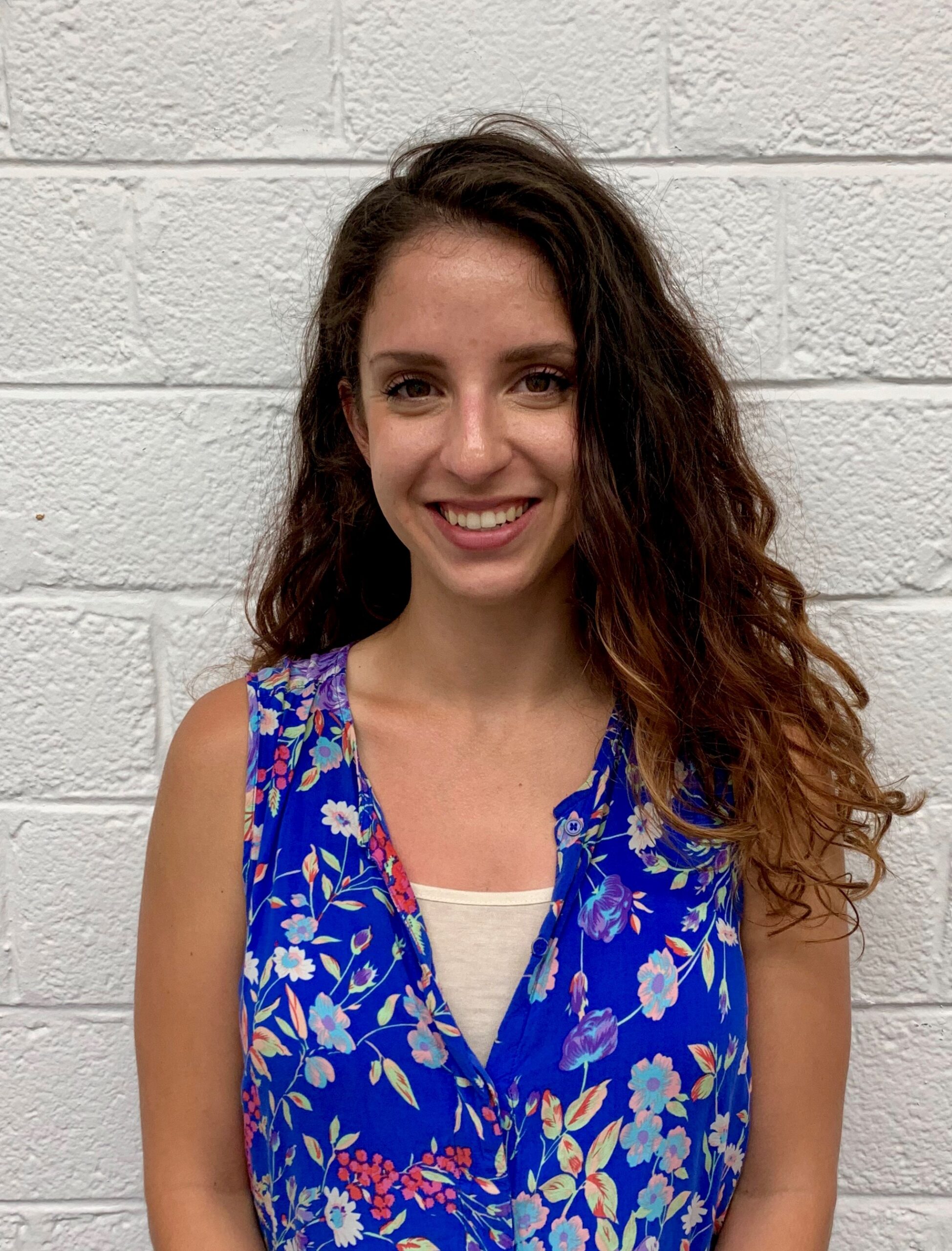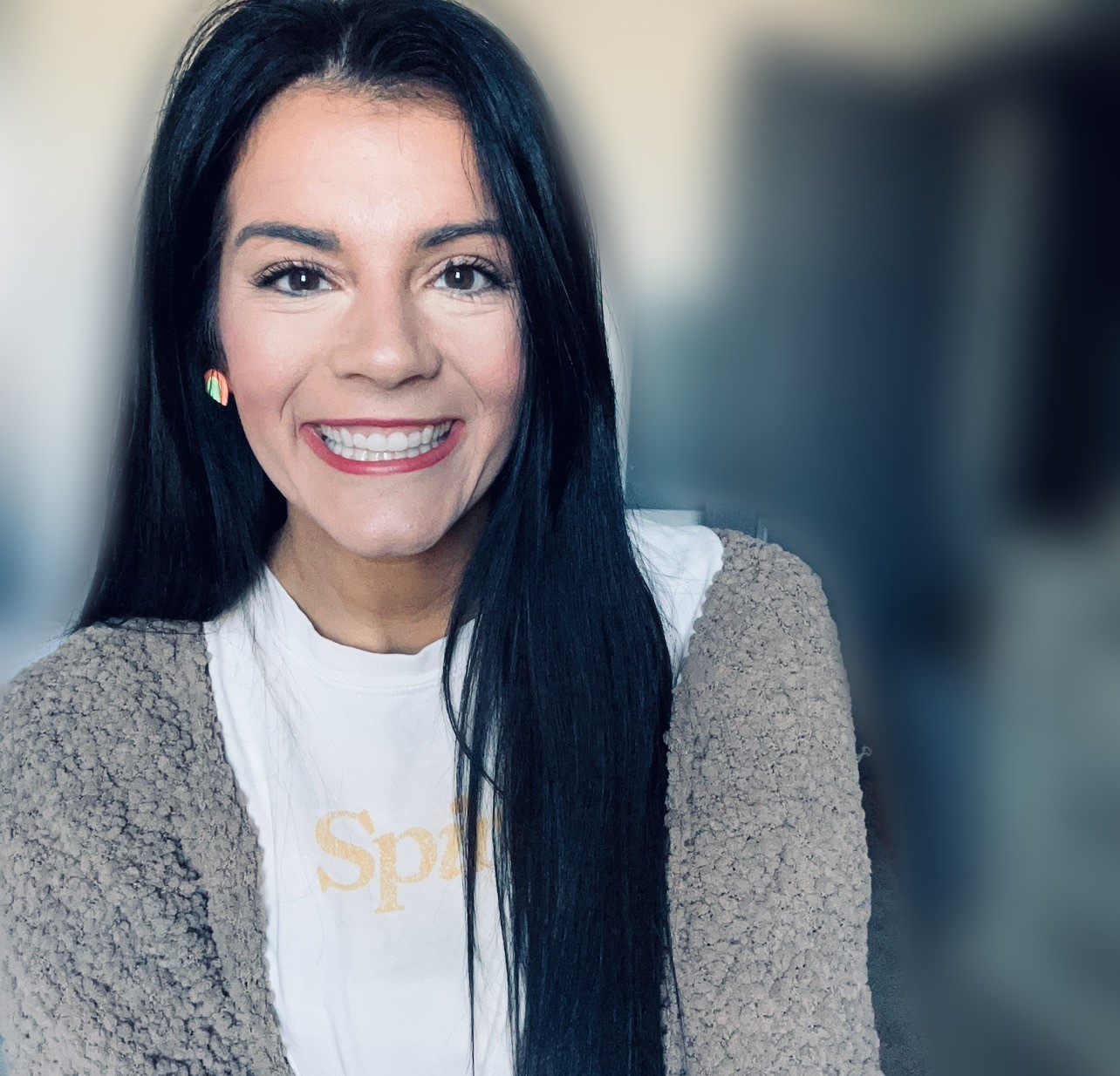Healthy Eating and Activity Laboratory (HEAL)
Under the direction of Hollie Raynor, the Healthy Eating and Activity Laboratory (HEAL) conducts research on factors that impact on eating regulation and energy balance that can be used to improve lifestyle interventions that assist with achieving a healthy weight in children and adults, and how evidence-based lifestyle interventions can be implemented into community and practice-based settings.
The primary objectives of HEAL, through our program of scientific research, are the following:
- Explore the relationship between eating, activity, and sedentary behaviors to better understand factors that impact on energy balance.
- Develop innovative and effective treatments for children and adults that lead to eating and activity habits that meet current recommendations.
- Improve the effect of state-of-the-art lifestyle interventions on weight gain prevention, weight loss, and weight loss maintenance in children and adults.
- Translate evidence-based lifestyle interventions into community and practice-based settings.
- Provide training to students interested in applied obesity research.
- Develop client-centered counseling skills.
- Implement behavior modification strategies to assist with changing energy balance behaviors.
- Refine dietary, physical activity, and sedentary behaviors assessment skills.
- Acquire skills, such as the ability to manage and statistically analyze data, important for conducting evaluations.
- Understand how evidence-based guidelines are developed and implemented in practice-based settings.
- Improve writing skills for developing materials, and proposal/grant and manuscript submissions.
Join HEAL
One important objective of the Healthy Eating and Activity Laboratory (HEAL) is to help students, both undergraduate and graduate, at UT understand how to counsel families and adults, implement evidence-based lifestyle interventions, and conduct research. Preference is given to individuals who can commit to two or more semesters. Prior research experience is helpful, but not necessary. Duties vary but can include assisting with participant recruitment; conducting assessments; conducting laboratory protocols; and coding and entering data.
Undergraduate Research Assistant Position Description
Undergraduate Research Assistant Application
Graduate students may gain research experience conducting clinical diagnostic interviews, aiding in treatment development, facilitating group interventions, assisting with data analysis, and other laboratory functions. They may also assist in presenting study results at professional meetings and in scientific publications.
All students attend a weekly lab meeting in which we discuss ongoing research within the lab, as well as current literature and issues surrounding research in eating disorders and obesity.
If you are interested in learning about these opportunities, contact Hollie Raynor (hraynor@utk.edu), Executive Associate Dean for Research and Operations.
HEAL People
Hollie Raynor, PhD, RD, LDN
Executive Associate Dean of Research and Operations

Hollie Raynor is the Director of the Healthy Eating and Activity Laboratory. She has training in the fields of nutrition and clinical psychology. She received her master’s degree in Public Health Nutrition from the University of Tennessee, Knoxville, her doctorate in clinical psychology from the University at Buffalo, and completed her pre-doctoral internship and her post-doctoral fellowship, both with an emphasis in obesity research, at Brown Medical School. Following her fellowship she was promoted to an assistant professor of research in the Department of Psychiatry and Human Behavior at Brown Medical School and was based in the Weight Control and Diabetes Research Center (http://www.weightresearch.org/) . She joined the Department of Nutrition at the University of Tennessee, Knoxville, as an assistant professor in 2007. She also has an adjunct appointment in the psychology department (http://psychology.utk.edu/) at the University of Tennessee, Knoxville. She is currently a full professor and the Executive Associate Dean of Research and Operations for the College of Education, Health and Human Sciences. She has published over 150 peer-reviewed articles, and has received funding from the National Institutes of Health, American Diabetes Association, and the Academy of Nutrition and Dietetics Foundation for her research. She served as a member of the National Committee for Clinical Guidelines for Obesity for the American Psychological Association and as a member of the Academy of Nutrition and Dietetics’ Prediabetes and Adult Obesity Treatment Evidence Analysis Library Committee. She is currently a member of the Dietary Guidelines Advisory Committee. Her research interests are on identifying best methods to implement behavioral dietary factors that improve outcomes in obesity treatment (i.e., limiting variety, reducing energy density, shifting distribution of energy intake earlier in the day), and translating lifestyle intervention into practice-based settings (i.e., integrated primary care).
Chelsi Cardoso

Chelsi Cardoso is the research associate of the Healthy Eating and Activity Laboratory. She completed her bachelor’s of science in nutrition, as well as her master’s of science in Public Health Nutrition at the University of Tennessee, Knoxville. In addition, Chelsi is a registered dietitian and has extensive experience in implementing behaviorally-intensive nutrition counseling, for both weight and diabetes management. In the past, Chelsi has been an adjunct lecturer teaching Nutrition Counseling at the undergraduate level in the Department of Nutrition at the University of Tennessee, Knoxville. Currently, she is managing two National Institutes of Health grants, both of which are behaviorally-intensive treatment programs for overweight and obesity. Her research interests include weight loss, weight loss maintenance, and obesity prevention in both children and adults.
Lauren Griffiths

Lauren Griffiths is a graduate research assistant in the Healthy Eating and Activity Laboratory. She received her master’s of public health in Behavioral & Community Health Science at the Louisiana State University Health Sciences Center (LSUHSC) in 2015. After graduation, she worked as a research associate at the LSUHSC School of Public Health where she coordinated a National Institutes of Health (NIH) funded study investigating the social and molecular determinants of obesity in youth. In 2017, Lauren joined the LSUHSC Human Development Center where she designed, implemented, and evaluated a number of nutrition- and health-related programs. She was also a core faculty member for the Louisiana Leadership Education in Neuro-developmental and Related Disabilities (LA LEND) training program funded by the Maternal and Child Health Bureau from 2017-2019. Lauren is currently pursuing a PhD in community nutrition at the University of Tennessee.
Emilie Holloway

Emilie Holloway is a graduate research assistant in the Healthy Eating and Activity Laboratory. She received a bachelor’s degree in human biology from North Carolina State University. Then, she attended Meredith College, obtaining her master’s in nutrition with a concentration in clinical dietetics. After completing her master’s, Emilie completed her dietetic internship to become a registered dietitian. Emilie’s research interests are focused on maternal and child health, specifically exploring the impact of infant feeding (breastfeeding, formula feeding, and solid food introduction) on health outcomes among families with lower socioeconomic status. In her free time, Emilie enjoys hiking, spending time with her family and friends, and cheering on her favorite sports teams!
Iyanuoluwa Oyetunji

Hi! My name is Iyanuoluwa Oyetunji, from Nigeria. I am a doctoral student in community nutrition, concurrently pursuing a graduate certificate in Health Policy. My research focuses on evaluating the interplay of diet and lifestyle in relation to the risks of chronic diseases, such as obesity, hypertension, and colorectal cancers. I am a student member of the American Public Health Association (APHA) and have been chosen for the 2024 cohort of the esteemed American Journal of Public Health (AJPH) Student Think Tank Fellowship. At UTK, I represent the Nutrition Department in the Graduate Student Senate and I am part of the leadership team of the Nigerian Student Association. In my leisure time, I enjoy singing, playing the guitar, board games, and hiking. Post my Ph.D., I aspire to channel my future research and teaching towards modifying diet and lifestyle to shape policies that address the escalating prevalence of chronic diseases.
Rosemary Hamsley

Rosemary Hamsley is a graduate research assistant in the Healthy Eating and Activity Laboratory. She received her master’s in exercise science from Tennessee Technological University. Throughout her studies and work experience, she has been amazed at the impact that physical activity and proper nutrition could have on the body. Rosemary decided to continue her studies in community nutrition as a MS student. After her time at UT, she plans to complete a dietetic internship.
HEAL Publication
Below is a brief list of published research that has been conducted by Hollie Raynor, her colleagues, and her students.
Raynor, H. A., Propst, S., Robson, S., Berlin, K. S., Barroso, C. S., & Khatri P. (2022). Implementing Prevention Plus with Underserved Families in an Integrated Primary Care Setting. (https://pubmed.ncbi.nlm.nih.gov/34767729/) Childhood Obesity, 18, 254-265.
Bean, M. K., Raynor, H. A., Thornton, L. M., de Jonge, L., & Mazzeo, S. E. (2022). Design and rationale for evaluating the impact of salad bars on elementary school students’ fruit, vegetable, and energy intake: a wait list control, cluster randomized controlled trial. (https://pubmed.ncbi.nlm.nih.gov/36494649/) BMC Public Health, 22, 2304.
Hart, C. N., Spaeth, A. M., Egleston, B. L., Carskadon, M.A., Raynor, H. A., Jelalian, E., Owens, J. A., Considine, R. V., & Wing, R. R. (2022). Effect of changes in children’s bedtime and sleep period on targeted eating behaviors and timing of caloric intake. (https://pubmed.ncbi.nlm.nih.gov/35390756/) Eating Behaviors, 45,101629.
Raynor, H. A., Mazzeo, S. E., LaRose, J. G., Adams, E. L., Thornton, L. M., Caccavale, L. J., & Bean, M. K. (2021). Effect of a high-intensity dietary intervention on changes in dietary intake and eating pathology during a multi-component adolescent obesity intervention (https://pubmed.ncbi.nlm.nih.gov/34071560/). Nutrients, 13, 1850.
*Griffiths, L.A., Douglas, S. M., & Raynor, H. A. (2021). The role of structure in dietary approaches for the treatment of pediatric overweight and obesity: A critical review (https://pubmed.ncbi.nlm.nih.gov/33955110/). Obesity Reviews, 22, e13266.
*Grider, H. S., Douglas, S. M., & Raynor, H. A. (2021). The influence of mindful eating and/or intuitive eating approaches on dietary intake: A systematic review (https://pubmed.ncbi.nlm.nih.gov/33279464/). Journal of the Academy of Nutrition and Dietetics, 121, 709-727.
Raynor, H. A., Barroso, C., Propst, S., Berlin, K., Robson, S., & Khatri, P. (2020). Reach of a low intensity, multicomponent childhood overweight and obesity intervention delivered in an integrated primary care setting (https://pubmed.ncbi.nlm.nih.gov/31220326/). Translational Behavioral Medicine, 10, 760-769.
Raynor, H. A., Thomas, J. G., Cardoso, C. C., Wojtanowski, A. C., & Foster, G.D. (2019). Examining the pattern of new foods and beverages consumed during obesity treatment to inform strategies for self-monitoring intake (https://pubmed.ncbi.nlm.nih.gov/30326244/). Appetite, 132, 147-153.
Raynor, H. A., & Champagne, C. M. (2016). Position of the Academy of Nutrition and Dietetics: interventions for the treatment of overweight and obesity in adults. Journal of the Academy of Nutrition and Dietetics (https://www.ncbi.nlm.nih.gov/pubmed/26718656), 116, 129-147.
*Poole, S. P., Hart, C. N., Jelalian, E., & Raynor, H. A. (2016). Relationship between dietary energy density and dietary quality in overweight young children: A cross-sectional analysis. (http://www.ncbi.nlm.nih.gov/pubmed/25914331) Pediatric Obesity 11, 128-135.
*Norton, E. M., *Poole, S. A., & Raynor, H. A. (2015). Impact of fruit juice and beverage portion size on snack intake in preschoolers. (http://www.ncbi.nlm.nih.gov/pubmed/26232137) Appetite, 95, 334-340.
Raynor, H. A., Anderson, A. M., Miller, G. D., Reeves, R., Delahanty, L. M., Vitolins, M. Z., Harper, P., Mobley, C., Konersman, K., Mayer-Davis, E., & the Look AHEAD Research Group (2015). Partial meal replacement plan and quality of the diet at one year: Action for Health in Diabetes (Look AHEAD) Trial. (http://www.ncbi.nlm.nih.gov/pubmed/25573655) Journal of the Academy of Nutrition and Dietetics, 155, 731-742.
Epstein, L. H., Kilanowski, C., Paluch, R. A., Raynor, H., & Daniel, T. 0. (2015). Reducing variety enhances effectiveness of family-based treatment for pediatric obesity. (http://www.ncbi.nlm.nih.gov/pubmed/25706950) Eating Behaviors, 17, 140-143.
Casazza, K., Brown, A., Astrup, A., Bertz, F., Baum, C., Brown, M. N., Dawson, J., Durant, N., Dutton, G., Fields, D. A., Fontaine, K. R., Levitsky, D., Mehta, T., Menachemi, N., Newby, P. K., Pate, R., Raynor, H., Rolls, B., J., Sen, B., Smith, D. L., Thomas, D., Wansink, B., & Allison, D. N. (2015). Weighing the evidence of common beliefs in obesity research. (http://www.ncbi.nlm.nih.gov/pubmed/24950157) Critical Reviews in Food Science and Nutrition, 55,2014-
*Looney, S. M., & Raynor, H. A. (2014). Examining the effect of three low-intensity pediatric obesity interventions: A pilot randomized controlled trial. (http://www.ncbi.nlm.nih.gov/pubmed/25006118) Clinical Pediatrics, 53, 1367-1374
*MacArthur, B., Coe, D., *Sweet, A., & Raynor, H. (2014). Active video gaming compared to unstructured, outdoor play in young children: percent time in moderate- to vigorous-intensity physical activity and estimated energy expenditure. (http://www.ncbi.nlm.nih.gov/pubmed/26192646) Games for Health, 3, 388-304
*Haire, C. L., & Raynor, H. A. (2014). The effects of weight and dietary restraint status on the relationship between package size and food intake. (http://www.ncbi.nlm.nih.gov/pubmed/24094792) Journal of Academy of Nutrition and Dietetics, 114, 1251-1256.
Katzmarzyk, P. T., Barlow, S., Bouchard, C., Catalano, P. M., Hsia, D. S., Inge, T. H., Lovelady, C., Raynor, H., Redman, L. M., Staiano, A. E., Spruijt-Metz, D., Symonds, M. E., Vickers, M., Wilfley, D., & Yanovski, J. A. (2014). An evolving scientific basis for the prevention and treatment of pediatric obesity. (http://www.ncbi.nlm.nih.gov/pubmed/24662696) International Journal of Obesity, 38, 887-905.
*Coletta, A., Bachman, J., Tepper, B. J., & Raynor, H. A. (2013). Greater energy reduction in 6-n propylthiouracil (PROP) super-tasters as compared to non-tasters during a lifestyle intervention. (http://www.ncbi.nlm.nih.gov/pubmed/23557816) Eating Behaviors, 14, 180-183.
Raynor, H. A., Steeves, E. A., Bassett Jr., D. R., Thompson, D. L., Gorin, A. A., & Bond, D.S. (2013). Reducing TV watching during adult obesity treatment: Two pilot randomized controlled trials. (http://www.ncbi.nlm.nih.gov/pubmed/24094792) Behavior Therapy, 44, 674-685.
Raynor HA, *Looney SM, Steeves EA, Spence M, Gorin AA. (2012). The effects of an energy density prescription on diet quality and weight loss: a pilot randomized controlled trial. (http://www.ncbi.nlm.nih.gov/pubmed/22575072) J Acad Nutr Diet. 112, 1397-1402.
Raynor HA, Steeves EA, Hecht J, Fava JL, Wing RR. (2012). Limiting variety in non-nutrient dense, energy-dense foods during a lifestyle intervention: a randomized controlled trial. (http://www.ncbi.nlm.nih.gov/pubmed/22552025) Am J Clin Nutr. 95, 1305-1314.
*Bachman JL, Raynor HA. (2012). Effect of manipulating eating frequency during a behavioral weight loss intervention: a pilot randomized controlled trial. (http://www.ncbi.nlm.nih.gov/pubmed/22173575) Obesity (Silver Spring). 20, 985-992.
Raynor HA, Osterholt KM, Hart CN, Jelalian E, Vivier P, Wing RR. (2012). Efficacy of U.S. paediatric obesity primary care guidelines: two randomized trials. (http://www.ncbi.nlm.nih.gov/pubmed/22434737) Pediatr Obes. 7, 28-38.
Raynor HA, Van Walleghen EL, *Bachman JL, *Looney SM, Phelan S, Wing RR. (2011). Dietary energy density and successful weight loss maintenance. (http://www.ncbi.nlm.nih.gov/pubmed/21385641) Eating Behav, 12, 119-125.
Raynor HA, Van Walleghen E, Osterholt K, Hart CN, Jelalian E, Wing RR, Goldfield G. (2011). The relationship between child and parent food hedonics and parent and child food group intake in overweight/obese children. (http://www.ncbi.nlm.nih.gov/pubmed/21338743) J Am Diet Assoc, 111, 425-430.
*Looney SM, Raynor HA. (2011). Impact of portion size and energy density on snack intake in preschool children. (http://www.ncbi.nlm.nih.gov/pubmed/21338741) J Am Diet Assoc, 111, 414- 418.
*Bachman JL, Phelan S, Wing RR, Raynor HA. (2011). Eating frequency is higher in weight loss maintainers and normal-weight individuals than in overweight individuals. (http://www.ncbi.nlm.nih.gov/pubmed/22027056) J Am Diet Assoc. 111, 1730-1734.
Raynor HA, Van Walleghen E, Niemeier H, Butryn M, Wing RR. (2009). The influence of single serving breakfast foods on breakfast consumption during an 8-week behavioral weight control program. (http://www.ncbi.nlm.nih.gov/pubmed/19857636) J Am Diet Assoc, 109, 1922-1925.
Raynor HA, Jeffery RW, Ruggeiro A, Clark J, Delahanty L. (2008). Weight loss strategies associated with body mass index in overweight adults with type 2 diabetes at entry into the Look AHEAD Trial. (http://www.ncbi.nlm.nih.gov/pubmed/18375417) Diabetes Care, 31, 1-6.
Wing RR, Tate OF, Gorin AA, Raynor HA, Fava JL. (2006). A self-regulation program for maintenance of weight loss. (http://www.ncbi.nlm.nih.gov/pubmed/17035649) New Engl J Med, 355,1563-1571. http://www.ncbi.nlm.nih.gov/pubmed/17035649 (http://www.ncbi.nlm.nih.gov/pubmed/17035649)
Raynor HA, Niemeier HN, Wing RR. (2006). Effect of limiting snack food variety on long-term sensory-specific satiety and monotony during obesity treatment. (http://www.ncbi.nlm.nih.gov/pubmed/16360618) Eating Behav, 7, 1-14.
Raynor HA, Wing RR, Jeffery RW, Phelan S, Hill JO. (2005). Amount of food group variety consumed in the diet and long-term weight loss maintenance. (http://www.ncbi.nlm.nih.gov/pubmed/15919842) Obes Res, 13, 883-890.
Epstein LH, Roemmich JN, Paluch RA, Raynor HA. (2005). Influence of changes in sedentary behavior on energy and macronutrient intake in youth. Am J Clin Nutr, 81, 361-366. http://www.ncbi.nlm.nih.gov/pubmed/15699222 (http://www.ncbi.nlm.nih.gov/pubmed/15699222)
Epstein LH, Paluch RA, Kilanowski CK, Raynor HA. (2004).The effect of reinforcement or stimulus control to reduce sedentary behavior in the treatment of pediatric obesity. (http://www.ncbi.nlm.nih.gov/pubmed/15264973) Health Psychol, 23, 371-380.
Epstein LH, Gordy CC, Raynor HA, Beddome M, Kilanowski CK, Paluch R. (2001). Increasing fruit and vegetable and decreasing fat and sugar intake in families at risk for childhood obesity. (http://www.ncbi.nlm.nih.gov/pubmed/11323442) Obes Res, 9, 171-178.
Raynor HA, Epstein LH. (2001). Dietary variety, energy regulation and obesity. (http://www.ncbi.nlm.nih.gov/pubmed/11393299) Psychol Bull, 127, 325-341.
*Indicates student
HEAL Research
If you are interested in participating in a research study that is open for enrollment, please call us at 865-974-0752 or e-mail us at heal@utk.edu.
Families Becoming Healthy Together – Closed to Enrollment
Families Becoming Healthy Together is evaluating if a family-based childhood overweight and obesity treatment program, that has goals for healthy eating and physically activity for both the child and adult caregiver, can improve child weight at 18 months. Eligible families must have an adult who is at least 18 years old and 20-75 pounds away from ideal weight, and a child with overweight or obesity between the ages of 8-12 years.
Foods within a Meal and Food Liking Study – Enrolling Now
The Foods within a Meal and Food Liking Study evaluates how different types of food within a meal influence the liking of foods. Participants are served chicken noodle soup, sugar-free chocolate pudding, grapes, strawberry yogurt, macaroni and cheese, vanilla ice cream, pretzels, and graham crackers. Both men and women between the ages of 18-35 and free of dietary restrictions are eligible for this study. A $25 gift card will be given to participants for their involvement.
Prevention Plus Study- Closed to Enrollment
Addressing health disparities is important in improving the nation’s health, and translating evidence-based guidelines into community settings that provide integrated primary care to the underserved may assist in achieving this goal. HEAL is partnering with Cherokee Health Systems, a federal qualified health center in East Tennessee, to implement and evaluate the Prevention Plus program to address childhood obesity. Additionally, household food insecurity status will be examined as a possible moderator of treatment outcome. Families with a child between the ages of 4 and 10 years, who are > 85th percentile body mass index, and receiving their primary care at Cherokee Health Systems are eligible to participate.
Influence of Changes in Food Group Variety on Food Cravings, Energy Intake, and Weight Loss after Bariatric Surgery – Closed to Enrollment
This study is examining changes in food group variety and food cravings on weight loss in individuals who have undergone bariatric surgery. Measures of dietary intake, food cravings, and weight loss will be taken before surgery and at 3, 6, and 12 months after surgery. Results of this study may have significant clinical implications for postoperative dietary recommendations for those who have had bariatric surgery. Collaborators on this project are the Tennessee Weight Loss and Surgery Center at the University of Tennessee Medical Center.
Weight Watchers Online Study – Closed to Enrollment
The purpose of the study is to evaluate the effect of the Weight Watchers’ Online program on weight loss. This is a 12-month study that will compare three different online programs. Men and women may be eligible if they are between the ages of 18 and 70 and could lose 20 to 70 pounds. Participants are asked to attend five appointments at the Healthy Eating and Activity Laboratory.
All aspects of the study are provided at no cost.
Timing of Meals for Weight Loss (TIME) – Closed to Enrollment
TIME is investigating the effect of the timing of when and how much is eaten on weight loss during obesity treatment. This program is an 8-week weight loss intervention. If you are between the ages of 25 and 65 and overweight or obese, you may be eligible. The program is provided free of charge to participants. You will learn about physical activity, nutrition, and tools to develop a healthy lifestyle. All treatment sessions are held at the Healthy Eating and Activity Laboratory on the University of Tennessee, Knoxville campus.
Eat Well for Life- Closed to Enrollment
Eat Well for Life is a 6-month study designed to examine the effect of different dietary strategies on weight loss maintenance in overweight and obese adults aged 21-65. The two phases of this study are weight loss and weight maintenance, with each phase lasting 3 months. The weight loss phase consists of consuming two meal replacement beverages for two meals, one snack, and one conventional meal per day. Individuals that lose 6% of their body weight during the weight loss phase will be randomized to one of two groups for weight loss maintenance. Randomized individuals will follow an eating plan that focuses on lowering the energy density of the diet or that focuses on reducing calorie intake. All aspects of treatment are provided at no cost, including meal replacements.
The Effect of Variety on Physical Activity – Closed to Enrollment
This laboratory-based investigation is examining the effect of engaging in a greater variety of active videogames on liking of activity in 30 non-obese, regularly active adults. Participants will complete 3 sessions in the HEAL laboratory in which they will play active videogames.
Participants are compensated for their time.
HEAL Resources
For our Families Becoming Healthy Together Program:
Traffic Light Diet Website: https://healaboratory.wixsite.com/mysite
(https://healaboratory.wixsite.com/mysite)
This site will allow you to search to see how to categorize a food as RED, GREEN, or YELLOW. Additionally, you can easily access the Traffic Light Diet Guidelines Table and have links to tutorial videos for MyFitnessPal.
American Cancer Society
871 Weisgarber Road
Knoxville, TN 37909
865-584-1668
www.cancer.org (http://www.cancer.org/)
American Diabetes Association
ATTN: National Call Center
1701 North Beauregard Street
Alexandra, VA 22311
1-800-DIABETES
www.diabetes.org (http://www.diabetes.org/)
Academy of Nutrition and Dietetics
120 South Riverside Plaza, Suite 2000
Chicago, Illinois 60606
800-877-1600
www.eatright.org (http://www.eatright.org/)
American Heart Association
AHA Knoxville
4708 Papermill Drive
Knoxville, TN 37909
865-212-6500
http://www.heart.org/HEARTORG/ (http://www.americanheart.org/)
American Psychological Association
750 First Street, NE
Washington, DC 20002-4242
Telephone: 202-336-5500, 800-374-2721
www.apa.org (http://www.apa.org/)
American Public Health Association
800 I Street, NW
Washington, DC 20001
202-777-2742
www.apha.org(http://www.apha.org/)
American Society for Nutrition
9650 Rockville Pike
Bethesda, MD 20814
301-634-7050
www.nutrition.org (http://www.nutrition.org/)
Association for Behavior and Cognitive Therapy (ABCT)
305 7th Avenue, 16th Fl.
New York, NY 10001
Telephone: 212-647-1890
www.abct.org[/half]] (http://www.abct.org/)
International Society for Behavioral Nutrition and Physical Activity
https://www.isbnpa.org/ (https://www.isbnpa.org/)
ChooseMyPlate.gov
USDA Center for Nutrition Policy and Promotion
3101 Park Center Drive
Alexandria, VA 22302-1594
888-799-7261
www.choosemyplate.gov/(http://www.choosemyplate.gov/)
The Obesity Society
8630 Fenton Street, Suite 814
Silver Spring, MD 20910
Telephone: 301-563-6526
http://www.obesity.org/ (http://www.obesity.org/)
Society of Behavioral Medicine
555 East Wells St., Suite 1100
Milwaukee, WI 53202-3823
Telephone: 414-918-3156 www.sbm.org (http://www.sbm.org/)
Society of Nutrition Education and Behavior
9100 Purdue Road, Suite 200
Indianapolis, IN 46268
800-235-6690
www.sne.org (http://www.sne.org/)
Society of the Study of Ingestive Behavior
5 Revere Drive – Suite 200
Northbrook, Illinois 60062
312-283-0900
www.ssib.org (https://www.ssib.org/web/)
Weight-control Information Network (WIN)
1 WIN Way
Bethesda, MD 20892-3365
877-946-4627
win.niddk.nih.gov (http://win.niddk.nih.gov/)
